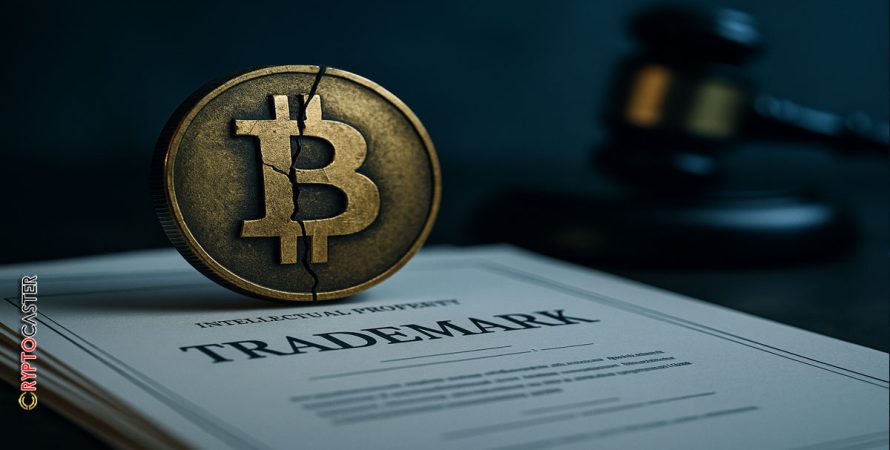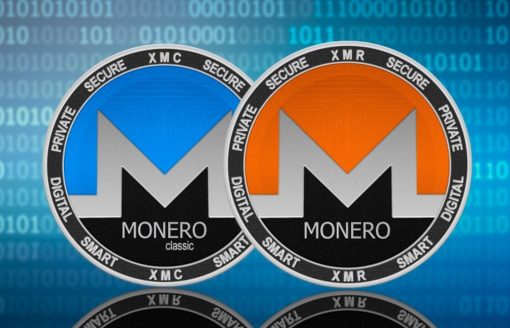By CryptoCaster Editorial Desk
A European intellectual property firm has ignited outrage after claiming legal ownership of the Bitcoin ₿ logo—one of the most recognizable symbols in modern finance. According to reports surfacing this week, the firm has begun sending copyright and trademark violation notices to online sellers, content creators, and crypto media outlets.
Stay in the know on crypto by frequently visiting Crypto News Today
The episode underscores a recurring irony in the digital economy: even in a decentralized system built on permissionless use, the old machinery of law and exclusivity can still assert control.
A Shock to the Open-Source Ethos
The Bitcoin logo has long been considered public domain. Designed by community contributors in Bitcoin’s early days, it was released under open license with no author asserting proprietary rights. Over time, it evolved into a global emblem of decentralization—freely used on exchanges, wallets, apparel, and publications.
CryptoCaster Quick Check:
That foundation is now in question. Trademark filings in Europe indicate that an IP entity has registered variants of the logo for commercial use in financial services and digital products. The company reportedly claims that any unlicensed commercial use violates its rights.
Crypto advocates were quick to push back. “Bitcoin belongs to everyone—and to no one,” wrote one developer on X. “Trademarking its symbol is the legal equivalent of claiming ownership of sunlight.”
Trademark vs. Copyright: A Legal Tightrope
Unlike copyright, which protects original creative work, trademark law guards symbols used to identify commercial goods or services. This distinction may allow an entity to claim legal rights over the logo’s commercial use, even if the design itself originated from open forums.
That gray area creates a potential enforcement window: the firm could legally pursue merchants or exchanges using the Bitcoin logo in profit-generating contexts—without challenging the non-commercial or personal use of the symbol.
“It’s a loophole waiting to be tested,” said one blockchain attorney. “If they can’t own the protocol, they’ll try to own the perception.”
A Symbol Too Big to Patent
For years, the Bitcoin ₿ has functioned like the internet’s anchor icon—a visual shorthand for an idea that transcends ownership. Yet its universal adoption also makes it vulnerable. Without active legal defense, public domain symbols can be trademarked by private actors, giving them limited but enforceable rights in specific jurisdictions.
Crypto historians note that this isn’t new: early web icons, including the RSS symbol and certain Creative Commons designs, faced similar claims before being reclassified as public assets.
Community Backlash and Potential Countermoves
In response to the trademark claim, several open-source advocates are organizing a legal fund to challenge the filing. Others propose registering the Bitcoin logo under a formal public domain dedication, similar to Creative Commons CC0—effectively making future claims impossible.
Industry watchers view this as a cautionary moment: crypto’s most powerful weapon—its open-source culture—can also be its weakest defense when confronted by the rigid structures of law.
Bottom Line ⚡
Bitcoin’s latest legal clash isn’t about ownership of an image; it’s about ownership of meaning.
A single logo trademark has become a symbolic test of whether decentralized culture can withstand the centralized tools designed to contain it.
If this article brought you clarity, insight, or value—support the work that made it possible.
At CryptoCaster, we report on Web3, crypto markets, and institutional finance with no billionaire owners, no shareholders, and no hidden agenda. While mainstream media bends toward Elon Musk, BlackRock, and JPMorgan narratives, we stay focused on what matters: truth, transparency, and the public interest.
We don’t just cover the headlines—we investigate the power structures behind them. From FTX and Ripple to the quiet push for CBDCs, we bring fearless reporting that isn’t filtered by corporate interests.
CryptoCaster is 100% paywall-free. Always has been. To keep it that way, we depend on readers like you.
If you believe independent crypto journalism matters, please contribute—starting at just $1 in Bitcoin or Ether. Wallet addresses are below.
Your support keeps us free, bold, and accountable to no one but you.
Thank you,
Kristin Steinbeck
Editor, CryptoCaster
Support CryptoCaster: The Unfolding of Money
At CryptoCaster.world, we’re dedicated to bold journalism, sharp insights, and fearless commentary across blockchain, Web3, and crypto markets. Your **Bitcoin contributions** help us stay independent and continue delivering signal over noise.
🚨 CryptoCaster does not offer investment advice. Always DYOR—volatility is real, and risk tolerance matters.
Support our mission. Contribute BTC today.
🔗 Bitcoin Address:
3NM7AAdxxaJ7jUhZ2nyfgcheWkrquvCzRm
Thank you for backing our journalistic lens as we chronicle the Unfolding of Money — a saga still being written in real time.![]()
CRYPTOCASTER HEATMAP








